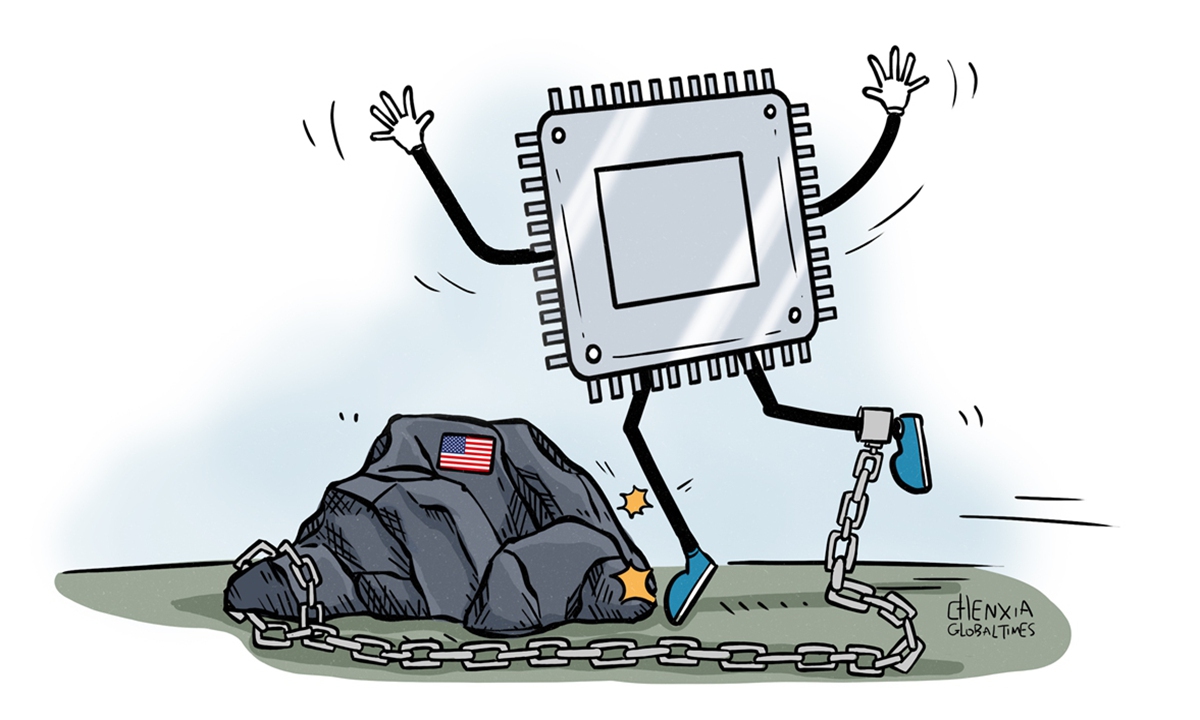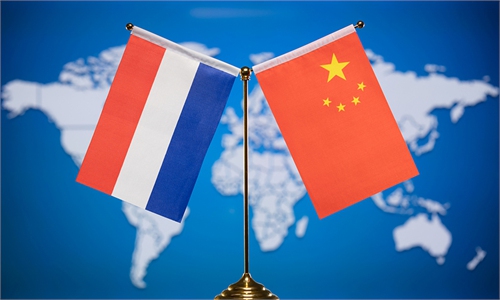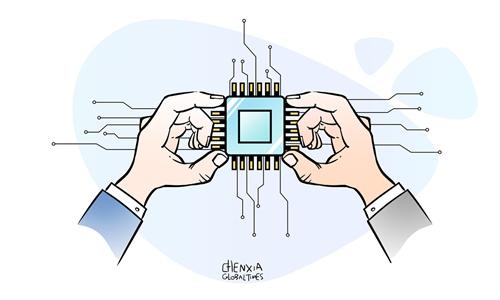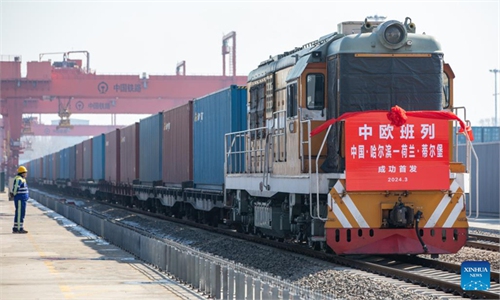
Illustration: Chen Xia/Global Times
While the visit of Prime Minister of the Netherlands Mark Rutte to China on Tuesday and Wednesday has put the European country's chip export policy in the spotlight, its significance should not be solely focused on the chip sector.It actually presents a unique opportunity for China and the Netherlands to enhance their mutual understanding in terms of potential economic and trade cooperation.
Dutch Foreign Trade Minister Geoffrey van Leeuwen, who was also in Beijing as part of Rutte's delegation, told Dutch business daily FD on Tuesday that defending the interests of ASML was his "number one" priority, according to Reuters.
In the same interview, Van Leeuwen added that "we also say that the national safety of ourselves and our partners goes before economic interests."
His remarks serve as a microcosm of the Dutch government's ongoing efforts to pursue economic opportunities with China amid geopolitical challenges, highlighting the allure of China's economy for the Netherlands.
It is true that media attention about Rutte's China visit revolved around whether ASML would receive Dutch government licenses to continue maintaining billions of euros worth of advanced equipment it has already sold to Chinese customers. However, it should be noted that although ASML's business in China has become an important part of the economic and trade relations between China and the Netherlands, it cannot represent the whole picture of bilateral economic ties.
The bilateral economic and trade relationship encompasses a diverse array of sectors, such as agriculture, services, environmental protection and energy cooperation. These areas of collaboration, which are also important to the economic ties of both sides, are the culmination of years of joint endeavors by both nations and should be valued.
Due to the continuous development of bilateral trade, the Netherlands has become China's second-largest trading partner in the EU, after Germany. In addition to ASML, Dutch companies like Philips and NXP also have significant business exposure to the Chinese market.
Moreover, since the Netherlands is one of the core member states in the EU, the Chinese-Dutch economic partnership not only brings mutual benefits and cooperation opportunities at the bilateral level but also contributes to global scientific and technological innovation and enhances cooperation between China and the EU.
Of course, there is no denying that China and the Netherlands are both facing pressure from the US. If anything, the technology war initiated by the US against China has had a significant impact on the common interests of the global industrial chain, and this has become a global problem.
In particular, advanced chip manufacturing equipment exported by the Netherlands has borne the brunt of US restrictions. The pressure has already been reflected in bilateral trade. In 2023, bilateral trade fell 9.8 percent year-on-year to $117 billion, a striking contrast with the 12 percent increase in 2022.
It is understandable that the Netherlands, as an ally of the US and with close economic ties with China, faces a difficult challenge in walking a tightrope between the two largest economies. It is the test that the country must deal with to achieve its own development.
This also explains why the Dutch business community pinned high hopes on Rutte's visit. If his visit could enhance the mutual understanding about bilateral cooperation, Dutch businesses may gain more access to the Chinese market. That will be conducive to helping alleviate the downward pressure on the Dutch economy.
In this sense, rather than focusing solely on ASML's profitability in China, it may be more meaningful to shift attention toward the potential growth and success of Dutch businesses in the Chinese market.
China is dedicated to fostering open cooperation, advancing scientific and technological innovation, and promoting industrial upgrading through mutually beneficial international partnerships. China's willingness to collaborate with the Netherlands to further enhance bilateral relations has never changed. We appreciate the Dutch government's efforts to protect the interests of its companies and hope it will maintain a fair and open approach in bilateral economic and trade relations.
China's sincerity in promoting economic and trade cooperation with the Netherlands and the huge potential of bilateral cooperation will create broader space for Dutch politicians to display their political wisdom and courage.



